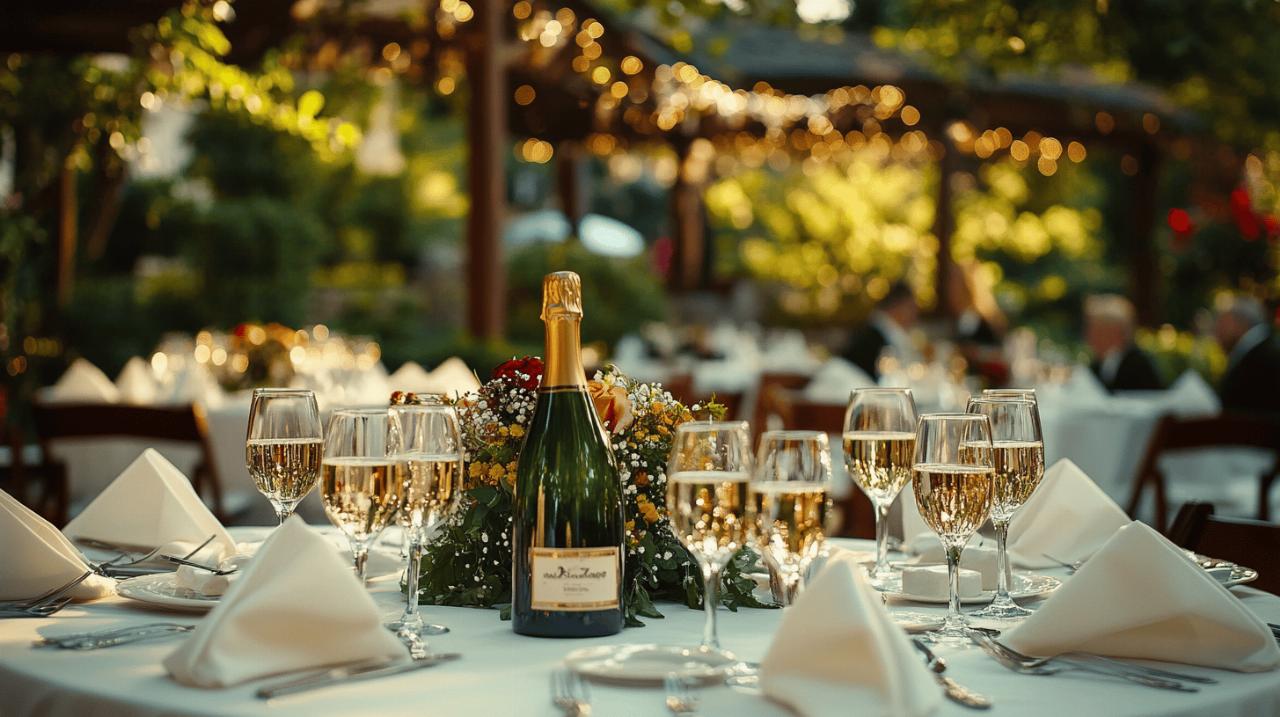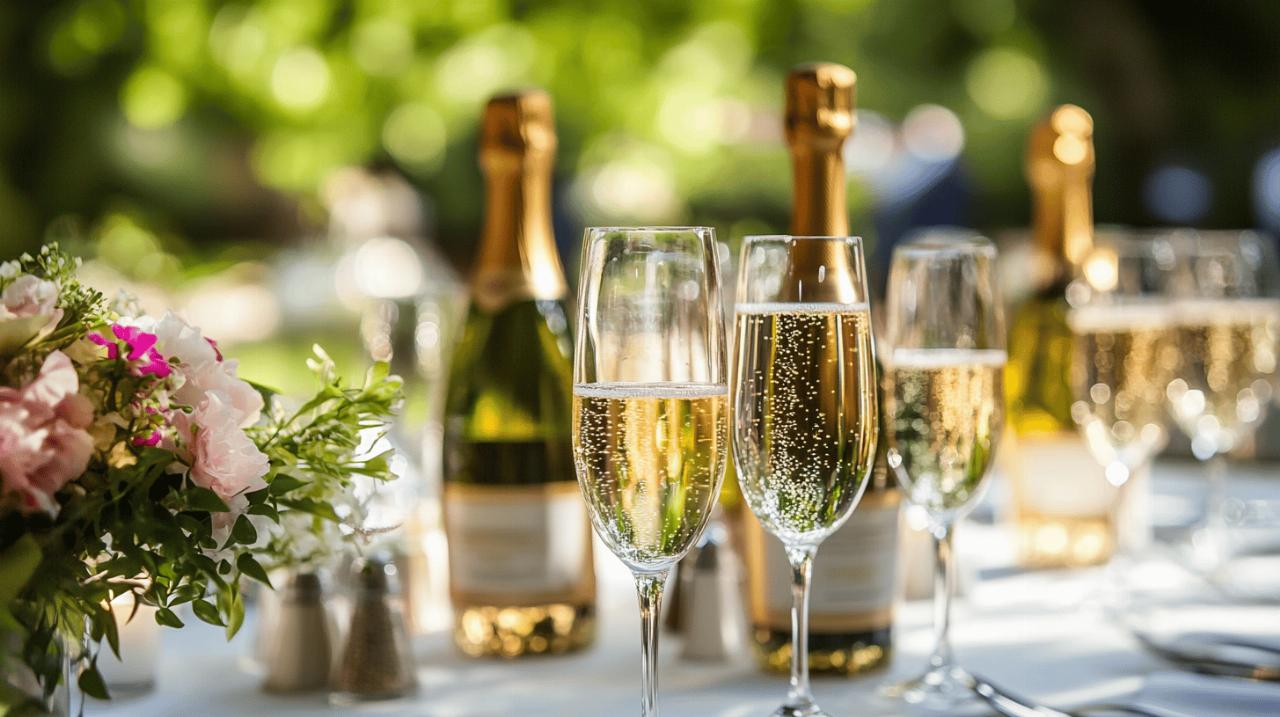How Many Bottles of Champagne for a Wedding and What to Do with the Empties: Eco-Friendly Waste Management Tips
Planning a wedding is an exciting yet sometimes daunting endeavor, filled with countless decisions that can feel overwhelming. Among the many details to sort, one question often arises: how much champagne should you order to ensure your guests can raise a glass and toast to your happiness? Beyond the celebration itself, there's also the matter of what to do with all those empty bottles once the festivities have concluded. Let's explore these considerations while keeping eco-friendly practices at the forefront.
Calculating Your Champagne Requirements for the Big Day
When it comes to determining the right amount of champagne for your wedding, the first step is to consider how you plan to serve it. Will the bubbly make an appearance solely during the speeches, or will it flow more liberally throughout the reception? Understanding your serving style will help you make a more accurate estimate and avoid both shortages and excessive waste.
Toast-only service: working out the numbers
If champagne is reserved exclusively for the traditional toast, the calculation becomes relatively straightforward. A standard bottle of champagne typically yields about six generous glasses. For a gathering of one hundred guests, you would need approximately seventeen bottles to ensure everyone can participate in the moment. This approach keeps things simple and controlled, allowing you to budget accordingly while still providing that essential touch of elegance and celebration that champagne brings to any wedding.
Full reception service: planning for generous pours
For couples who wish to extend the champagne experience beyond a single toast, perhaps offering it as a welcome drink upon arrival or serving it alongside the wedding meal, a more generous allocation is necessary. A widely accepted guideline suggests budgeting for roughly half a bottle per guest. This allows for a more relaxed atmosphere where guests can enjoy multiple glasses throughout the event. For a wedding of one hundred attendees, this would translate to approximately fifty bottles. It's worth noting that adjusting this figure based on your specific guest list and their anticipated preferences will help you strike the right balance. Having a few extra bottles on hand is always preferable to running out, ensuring that the celebration continues smoothly without any unwelcome interruptions.
Catering to All Tastes: Beyond the Bubbly
While champagne is a classic choice for weddings, it's important to remember that not all guests share the same preferences. Offering a variety of beverages ensures that everyone feels included and can enjoy the celebration in their own way. Thoughtful planning in this area demonstrates consideration for your guests and contributes to a more enjoyable experience for all.
Offering alternative beverages for diverse preferences
Some guests may prefer still wines, whether red, white, or even a delightful rosé, over sparkling varieties. Others might favour a different type of spirit altogether. By providing a selection of drinks, you cater to a broader range of tastes and ensure that everyone has something they enjoy. This variety also helps to manage champagne consumption, as guests who might not be keen on bubbly will have other appealing options to choose from. It's a simple yet effective way to enhance the overall hospitality of your event.
Non-alcoholic options: ensuring everyone can celebrate
Not everyone consumes alcohol, whether for personal, health, or religious reasons. Including a thoughtful selection of non-alcoholic beverages is essential to making all your guests feel welcome and valued. Consider offering sparkling water, freshly squeezed juices, or even a signature mocktail that complements your wedding theme. These options not only accommodate those who abstain from alcohol but also provide a refreshing alternative for guests who simply prefer a non-alcoholic drink at various points during the celebration. By prioritising inclusivity in your beverage selection, you create a warm and considerate atmosphere that reflects your thoughtfulness as hosts.
Practical considerations when ordering champagne
 Beyond calculating quantities and diversifying your drink menu, there are several practical aspects to address when ordering champagne for your wedding. These details can significantly impact both your budget and the overall smoothness of your celebration.
Beyond calculating quantities and diversifying your drink menu, there are several practical aspects to address when ordering champagne for your wedding. These details can significantly impact both your budget and the overall smoothness of your celebration.
Venue advice and corkage fees: getting expert guidance
Your chosen venue or caterer is likely to have considerable experience with weddings and can offer invaluable advice on how much champagne to order. They've witnessed countless celebrations and have a keen sense of what works well for different guest counts and event styles. Additionally, it's important to inquire about corkage fees if you plan to bring your own bottles. Some venues charge a fee for serving champagne that wasn't purchased through them, and understanding these costs upfront will help you avoid unexpected expenses. Engaging in an open conversation with your venue or caterer ensures that you benefit from their expertise while staying within your budget.
Ordering extra bottles: better safe than sorry
When it comes to ordering champagne, erring on the side of caution is generally the wisest approach. It's far better to have a few spare bottles at the end of the night than to find yourself running short during a key moment. Many suppliers are flexible and may allow you to return unopened bottles or adjust your order closer to the event date. Confirm these details when placing your order to maximise flexibility. Having a small buffer not only provides peace of mind but also ensures that the joyous atmosphere of your wedding remains uninterrupted, allowing you and your guests to focus entirely on celebrating your special day.
Eco-Friendly Disposal: What to Do with Empty Champagne Bottles
Once the last toast has been made and the celebration has drawn to a close, you'll likely be left with a collection of empty champagne bottles. Rather than simply tossing them away, consider eco-friendly options that align with sustainable values and contribute to reducing your wedding's environmental impact. The champagne industry itself has made significant strides in sustainability, with the Champagne region being the first wine region to assess its carbon footprint back in 2002. This commitment to environmental responsibility serves as inspiration for how we can manage the aftermath of our celebrations.
Recycling and Upcycling: Creative Ways to Repurpose Glass
Glass bottles are highly recyclable, making them an excellent candidate for responsible waste management. After your wedding, ensure that all empty bottles are collected and sent to a recycling facility where they can be processed and transformed into new products. Beyond traditional recycling, upcycling offers a creative and personal way to give these bottles a second life. Consider transforming them into decorative vases, candle holders, or even unique centrepieces for your home. Some couples choose to keep a few bottles as keepsakes, filling them with dried flowers or fairy lights to serve as charming reminders of their special day. These projects not only reduce waste but also add a personal touch to your living space, celebrating your wedding in an ongoing and meaningful way.
Local recycling schemes: proper waste management after the celebration
To ensure your empty champagne bottles are disposed of responsibly, familiarise yourself with local recycling schemes and facilities. Many councils offer comprehensive recycling services that accept glass, making it straightforward to manage your wedding waste. If your venue doesn't already have a recycling programme in place, inquire about their waste management practices and encourage them to prioritise sustainability. By actively participating in local recycling efforts, you contribute to a larger movement towards reducing landfill waste and conserving natural resources. The champagne industry has set an admirable example by reducing the weight of bottles by seven percent to lower packaging and transport emissions, and by achieving ninety percent sorting and processing of industrial waste for reuse. These efforts underscore the importance of responsible waste management and inspire us to adopt similar practices in our own lives. Taking the time to properly recycle or repurpose your wedding's empty bottles is a small yet meaningful step towards hosting a celebration that honours both your love and the planet.
